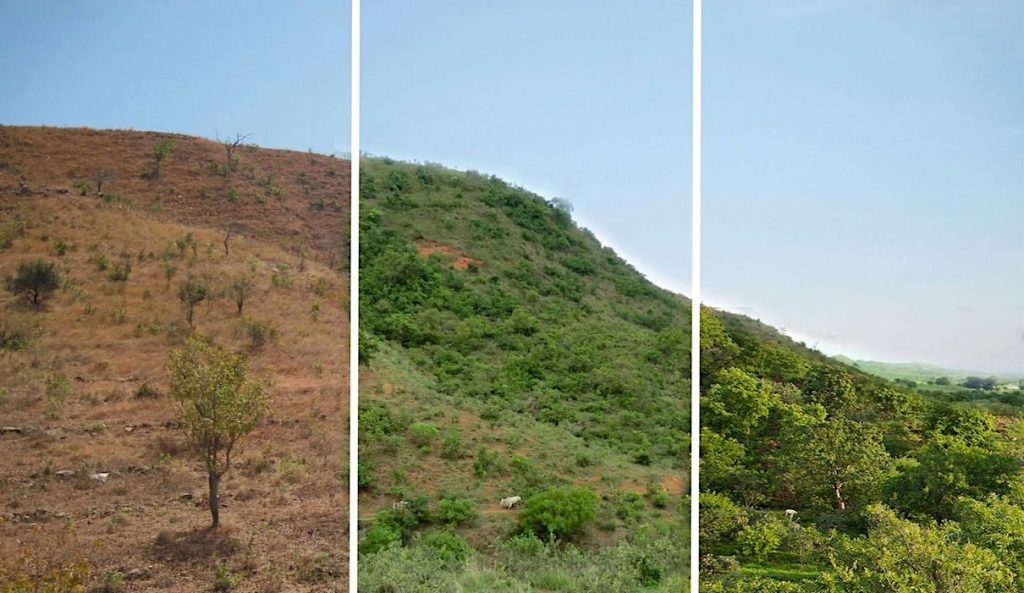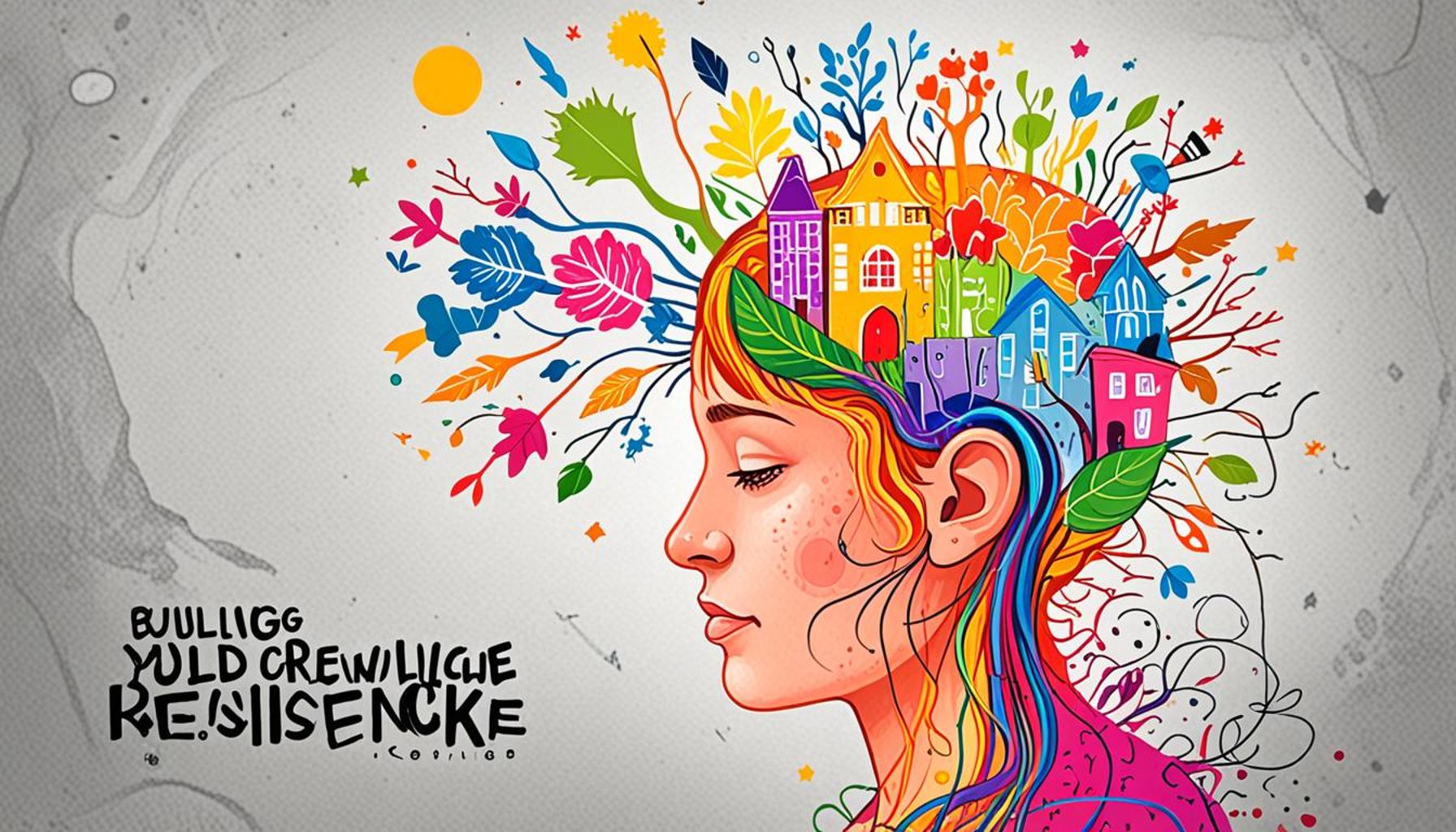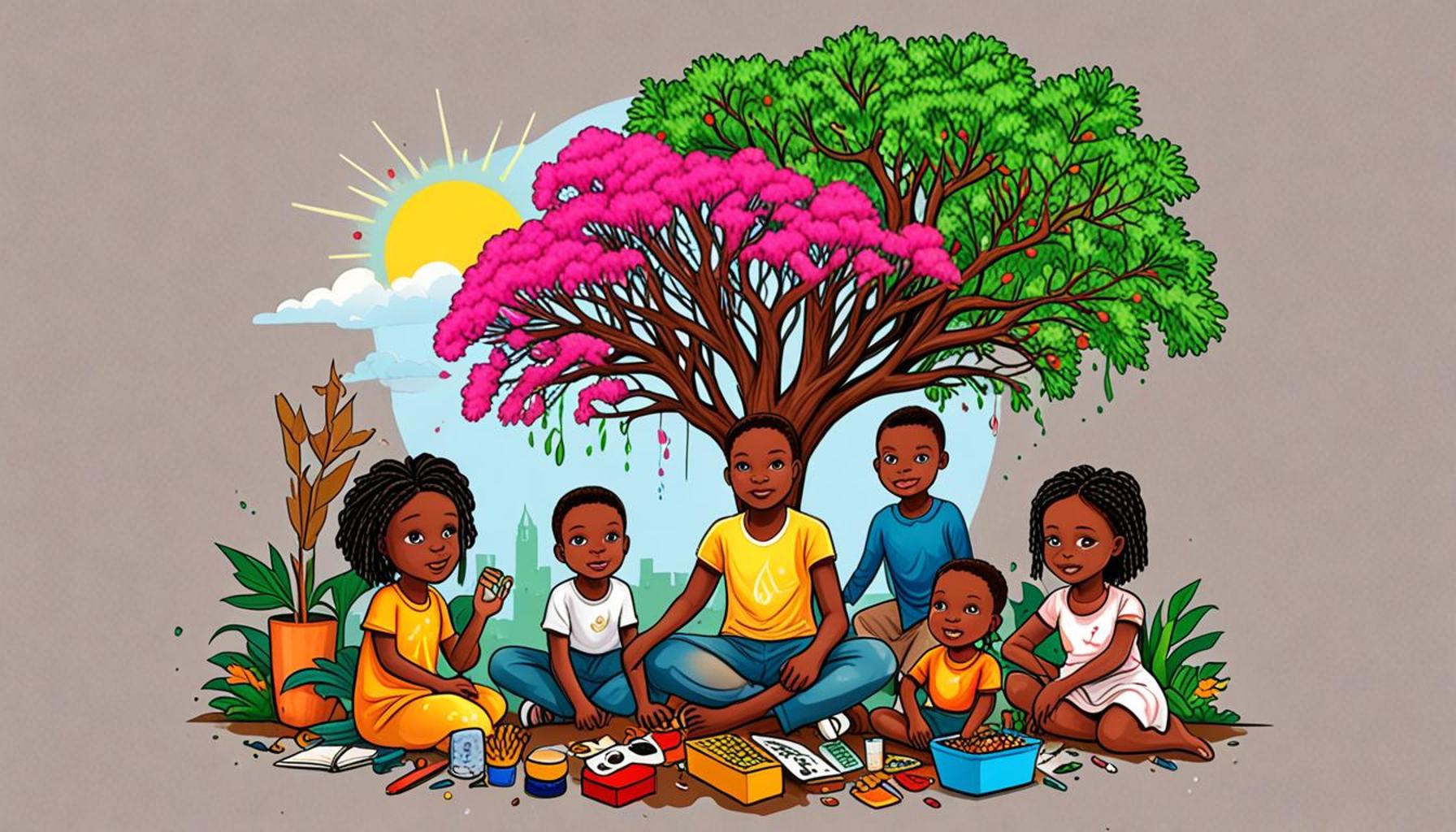Resilience and Sustainability: Applying a Growth Mindset to Environmental Initiatives in Nigeria

The Importance of Embracing a Growth Mindset in Environmental Strategies
The realities of climate change and environmental degradation loom large over Nigeria, highlighted by extreme weather events such as devastating floods and relentless droughts. These challenges not only threaten the livelihoods of countless communities but also signal the urgent need for innovative solutions to safeguard our ecosystems. This pressing situation paves the way for a transformative approach—adopting a growth mindset oriented towards resilience and sustainability.
To be effective, this mindset entails viewing challenges not merely as obstacles but as gateways to innovation and improvement. For Nigeria, this perspective shift can be instrumental in tackling environmental issues. Here are several key components integral to this approach:
- Innovative Solutions: To combat energy crises, Nigeria is increasingly exploring renewable energy solutions such as solar and wind power. Regions like Katsina are harnessing solar energy to light up remote communities, reducing dependency on fossil fuels. Furthermore, advancements in waste management technologies, such as those implemented by NGOs like WeCyclers, are fostering recycling culture and reducing urban waste, showcasing how local ingenuity can address larger environmental concerns.
- Community Engagement: Empowering local communities is vital for the success of environmental initiatives. The Green Girls Initiative, for example, mobilizes young women in urban areas to participate in tree planting and conservation efforts. Such grassroots movements not only enhance local biodiversity but also inspire a sense of ownership and responsibility towards the environment. These community-driven initiatives demonstrate that collective action can lead to meaningful change.
- Education and Awareness: Raising awareness about sustainable practices is crucial for instilling environmental stewardship among citizens. Schools and organizations are integrating environmental education into their curriculums, teaching children about the importance of conservation efforts and waste reduction. Campaigns like the Clean Nigeria Initiative are pivotal in spreading awareness and equipping citizens with practical tips for sustainable living, from proper waste disposal to water conservation methods.
In fostering a culture of resilience, Nigeria can adapt to environmental changes more effectively and promote initiatives aimed at conserving its rich natural resources. This growth mindset not only aims to enhance individual capabilities but can also yield profound collective impacts. As the nation grapples with these pressing environmental issues, it becomes increasingly clear that rethinking our approach could lead to sustainable outcomes that benefit both present and future generations.
Across Nigeria, various initiatives exemplify how embracing a resilient mindset can drive sustainable practices. By focusing on innovative solutions, community involvement, and heightened education, we can cultivate a healthier environment for all. The journey towards environmental sustainability is not merely a necessity; it is a responsibility we must collectively embrace for the future of our beloved nation.
SEE ALSO: Click here to read another article

Building a Foundation for Resilient Environmental Practices
As Nigeria navigates the complex waters of climate change and environmental challenges, it becomes increasingly imperative to cultivate a culture that values resilience and sustainability. Key to this endeavor is the integration of a growth mindset, which empowers communities to adapt to changing conditions and embrace innovative strategies. Below are essential aspects of this approach:
- Adoption of Renewable Resources: Nigeria’s abundant sunlight presents a significant opportunity for expanding renewable energy solutions. In northern states, such as Katsina and Sokoto, solar energy farms are already transforming local economies, providing power to areas previously reliant on erratic fossil fuel supplies. Moreover, the potential for wind power along the coastal regions of Lagos and Ogun continues to attract investment, demonstrating a shift towards cleaner alternatives that not only reduce greenhouse gas emissions but also promise long-term sustainability.
- Enhancing Agricultural Practices: Agriculture is the backbone of Nigeria’s economy and a vital source of livelihood for millions. Yet, traditional farming methods often contribute to environmental degradation. By adopting sustainable agricultural practices such as agroforestry and permaculture, farmers can improve soil health and increase crop resilience against climate shocks. Initiatives like the Nigeria Climate-Smart Agriculture Programme are vital in promoting sustainable practices that ensure food security while protecting natural resources.
- Urban Planning and Infrastructure: Rapid urbanization has exacerbated environmental challenges across Nigerian cities. To mitigate these issues, it is essential to invest in sustainable urban planning that incorporates green infrastructure, such as parks, green roofs, and permeable pavements. These innovations not only enhance urban aesthetics but also manage stormwater effectively, reducing flood risks. Collaborative projects between state governments and private sectors can rally resources, fostering sustainable city designs that address both environmental concerns and public health.
- Policy and Governance: Robust policies and environmental legislation are crucial for guiding sustainable practices. Nigeria must strengthen its commitment to existing frameworks such as the National Environmental Policy and the Paris Agreement. Engaging communities in the policy-making process ensures that local knowledge and concerns are considered, leading to policies that are practical and effective. Moreover, transparency and accountability within environmental governance build trust among citizens, fostering a collective commitment to sustainability.
Embracing a growth mindset allows Nigeria to approach these pressing environmental issues with optimism and creativity. The emphasis on innovation and community involvement not only leads to improved ecological outcomes but also strengthens the social fabric necessary for tackling complex challenges. By placing resilience at the forefront, the nation can navigate its environmental landscape more adeptly, ensuring sustainability for generations to come.
Ultimately, these foundational elements of a resilient approach not only address immediate environmental concerns but also cultivate long-term sustainability deeply rooted in Nigeria’s culture and practices. The call to action is clear: harnessing the power of a growth mindset can unlock a pathway to genuine progress and a healthier environment for all Nigerians.
| Advantage | Description |
|---|---|
| Community Engagement | Fostering local involvement in environmental initiatives enhances the likelihood of sustainable practices being adopted. |
| Innovative Solutions | Applying a growth mindset encourages the development of creative solutions to overcome environmental challenges. |
The essence of resilience and sustainability in Nigeria lies in instilling a growth mindset that not only embraces challenges but also encourages innovative practices. Transforming the environmental landscape of Nigeria requires communities to become active participants in crafting solutions tailored to their unique contexts. By promoting community engagement, stakeholders can harness local knowledge and motivate collective efforts towards environmental sustainability.Furthermore, adopting a growth mindset allows individuals and organizations to view setbacks as opportunities for learning, ultimately leading to innovative solutions for pressing environmental issues. This mindset cultivates resilience, enabling communities to adapt and thrive despite adverse conditions, laying the groundwork for a sustainable future. Continued exploration of these concepts reveals the potential for Nigeria to become a leader in effective environmental stewardship driven by local innovation and collaboration.
ADDITIONAL INSIGHTS: Expand your understanding here
Empowering Communities through Education and Innovation
For Nigeria to achieve lasting resilience and sustainability, it is essential to harness the power of education and innovation. These two pillars not only empower individuals and communities but also inspire a collective movement towards environmentally-friendly practices. Here are some key factors to consider:
- Environmental Education: Raising awareness about environmental issues is the first step to fostering a culture of sustainability. Integrating environmental education into school curricula can equip the younger generation with knowledge about climate change, biodiversity, and sustainable practices. Programs such as the Nigerian Conservation Foundation’s Schools Programme provide interactive learning experiences that encourage students to engage with their local ecosystems. This grassroots approach cultivates an informed citizenry that values and takes ownership of their environmental surroundings.
- Community-Led Initiatives: Empowering local communities to take charge of their environmental challenges is an effective way to create tailored solutions that fit their specific contexts. Initiatives like the Girls in Tech Nigeria not only promote technological empowerment but also advocate for sustainable practices that address pressing environmental issues. By involving communities in decision-making, it fosters a sense of accountability and encourages innovative problem-solving that reflects local needs.
- Leveraging Technology: The advent of technology offers transformative potentials within environmental management. Mobile applications, for instance, can facilitate data collection on environmental impacts, aiding in better decision-making processes. Moreover, technology-driven projects such as the Nigeria Climate Innovation Centre support entrepreneurs in developing and commercializing climate-smart technologies. These ventures often focus on renewable energy, waste management, and sustainable agriculture—all crucial components of a resilient ecosystem.
- Strengthening Networks and Partnerships: Collaboration between government agencies, non-governmental organizations (NGOs), and the private sector is paramount to advancing environmental initiatives. Partnerships provide effective platforms for resource sharing, best practices, and technological innovations. Organizations such as the Nigerian Climate Change Network encourage various stakeholders to come together, creating a unified front to address Nigeria’s environmental challenges. Such alliances foster greater impact and amplify the voice of local communities within the broader national dialogue on sustainability.
Through these strategies, Nigeria can enhance its resilience and advance its sustainability agenda. By focusing on education and innovation, the country can mobilize a proactive citizenry ready to take on environmental challenges with creativity and a sense of purpose. The journey toward a sustainable future requires persistent efforts that reflect the diverse strengths of Nigeria’s communities, ultimately leading to a vibrant ecosystem that supports both human and environmental flourishing.
As Nigeria embraces this growth mindset, the potential for change becomes tangible, paving the way for a renewed commitment to environmental stewardship that resonates with every facet of society.
CHECK OUT: Click here to explore more
Conclusion: A Path Forward for Nigeria’s Environmental Future
In today’s rapidly evolving world, resilience and sustainability are not just goals but essential prerequisites for survival, especially for a nation like Nigeria grappling with the multifaceted challenges of environmental degradation. By applying a growth mindset, Nigeria can transform its approach to environmental initiatives, evolving from reactive measures to proactive, innovative solutions.
As we have explored, education emerges as a vital element in building a sustainable future. By incorporating environmental literacy into educational curricula, we cultivate a generation that not only understands the value of their local ecosystems but also possesses the skills to innovate and lead community-driven projects. Additionally, the emphasis on community-led initiatives equips individuals with the tools needed to tackle local environmental challenges creatively and effectively.
The role of technology cannot be overstated; leveraging technological advancements offers immense potential for data-driven solutions that address Nigeria’s unique environmental landscape. Collaborations between various stakeholders—including governmental bodies, NGOs, and the private sector—are crucial in fostering a network that encourages resource sharing and amplifies innovative efforts.
Ultimately, the journey toward a more sustainable future in Nigeria calls for a united vision—one where every community member feels empowered to contribute toward environmental conservation. By adopting a growth mindset, Nigeria stands at the threshold of a transformative journey, paving the way for a flourishing ecosystem that nurtures both the people and the planet. The commitment to resilience and sustainability will not only help cushion the impacts of climate change but also nurture a legacy of stewardship that future generations can uphold. As we move forward, let us recognize that change is not only possible, but it starts with us, in our communities, through education, innovation, and collaboration.


